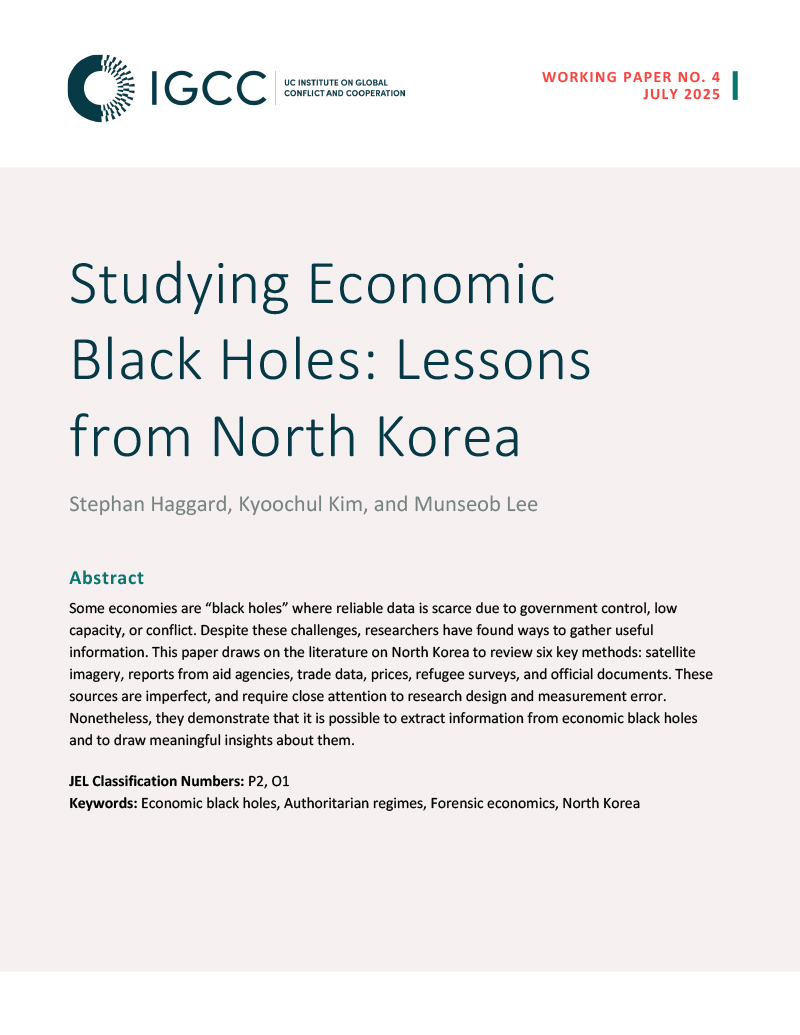Studying Economic Black Holes: Lessons from North Korea

For some economies, reliable data is scarce due to government control, low capacity, or conflict. In this working paper, Stephan Haggard, Kyoochul Kim, and Munseob Lee provide six methods for obtaining information from these economic “black holes,” using North Korea as a testing ground.
DownloadEconomists rely on data to examine national economies, but in some places, that data is difficult to access because of government restrictions, low state capacity, or the presence of conflict. In this working paper, Stephan Haggard, distinguished research professor at the UC San Diego, Kyoochul Kim, fellow at the Korea Development Institute, and Munseob Lee, assistant professor at UC San Diego, look at one of the world’s most notorious “black holes” for economic data—North Korea—to better understand how social scientists can uncover information in such challenging environments.
Haggard, Kim, and Lee propose six key methods for collecting data from “black hole” economies based on the example of North Korea. First, researchers can use data collected from satellites as a proxy for economic activity, such as the presence and nature of land cover, environmental pollutants, and artificial light. Second, when black hole economies request international aid, they are often compelled by donors to provide information and access to ensure aid is spent wisely, allowing researchers another peak behind the curtain. Third, when black hole economies trade with foreign partners, the other nation may provide commercial data, allowing researchers to “mirror” this information by swapping imports for exports and vice versa. Fourth, information on internal prices within black hole economies can be collected by surveyors within the country and disseminated clandestinely over Internet and mobile phone networks. Fifth, refugees can provide observations about price data their home countries through interviews. And finally, official documents, while factually unreliable, provide insights into black hole regimes’ economic priorities and how they change over time.
In sum, collecting data from economic black holes is possible—however, as Haggard, Kim, and Lee conclude, each of the methods has limitations, and insights are more likely to be gained from a combination of these means. In the future, new technologies and the refining of these methods can offer greater accuracy and ensure that information from black hole economies is accessed in a safe and ethical manner.
Thumbnail credit: Flickr